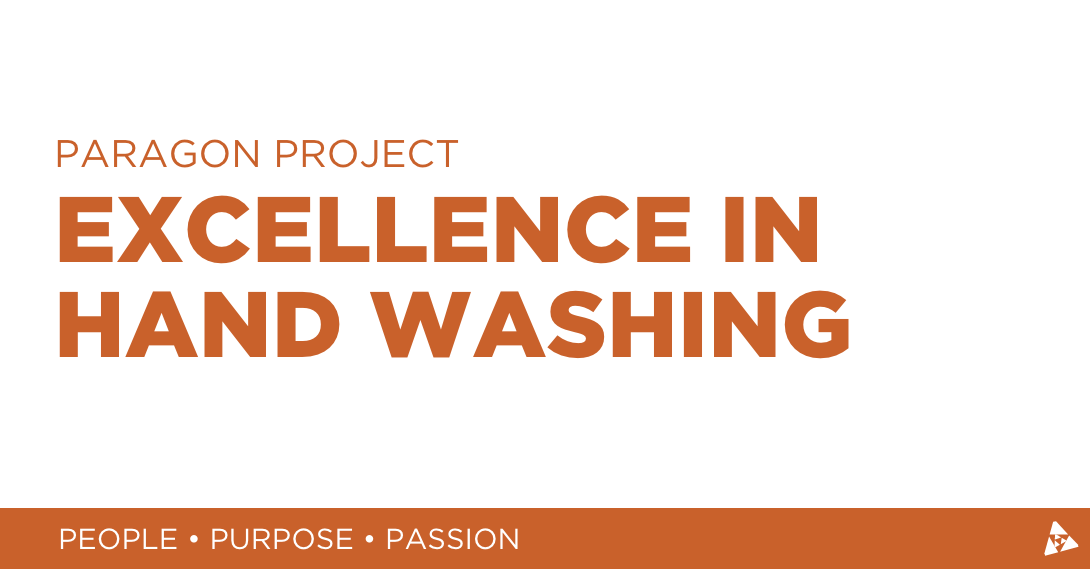The Paragon Project highlights the true meaning of being a "paragon" by sharing tips on doing things with excellence. Read on to learn more about excellence in hand washing.

Over the past few years, we’ve used our weekly blog posts (and accompanying videos) to introduce you to important members of the Paragon family – patients, healthcare professionals and support staff who are shining examples of the people-first mission we find ourselves on every day. This year, we’ll do something a little different by focusing on one of our other core values: excellence. Every week, our blog will discuss how to pursue excellence in a particular field. Some are healthcare-related, and other will be more broad. Read on to learn about excellent handwashing in honor of National Hand Washing Awareness Week.
Hand washing is many things. Simple, underappreciated, often overlooked, and extremely effective. It can be easy to forget that last one because hand washing is often looked over in favor of flashier or more dramatic public health initiatives, but proper hand hygiene is one of the most effective methods of protecting yourself and your family from getting sick.
Medical science has grown in giant leaps and bounds in the last 200 years, and hand hygiene is no exception. It wasn’t until the mid-19th century that Hungarian physician Ignaz Semmelweis, often called the “founder of modern nursing,” recognized that washing hands seemed to decrease the risk of infection in vulnerable patients like wounded soldiers or mothers giving birth. Up to that point, most of western medicine had thought infections were caused by exposure to toxic air.
While we would like to hope that most people wash their hands regularly, especially after certain activities with a higher risk of exposure to harmful bacteria, the fact remains that many people either do not know how to properly wash their hands, or don’t realize how often they should be doing so.
In the absence of soap and/or running water, you can instead use an alcohol-based hand sanitizer (at least 60% strength) to clean your hands. Hand sanitizers are capable of killing many different kinds of germs, but are generally less effective when your hands are visibly dirty or greasy, and may not be able to remove harmful chemicals as well as soap.
The CDC publishes a complete list of times you should wash your hands with the above methods, but to keep it simple, we can group some of them together.
Food: Before, during and after preparing food, eating, handling pet food or treats, or handling garbage.
Illness: Before and after caring for someone who is sick, after blowing your nose, coughing or sneezing, or before or after treating a cut or wound on yourself or someone else.
Bathroom: Before and after using the toilet, before and after changing a diaper, or before and after cleaning up after a child or other person who has used the toilet.
 Paragon Project: Excellence in Hand Washing
Paragon Project: Excellence in Hand Washing
The Paragon Project highlights the true meaning of being a "paragon" by sharing tips on doing things with excellence. Read on to learn more about excellence in hand washing.